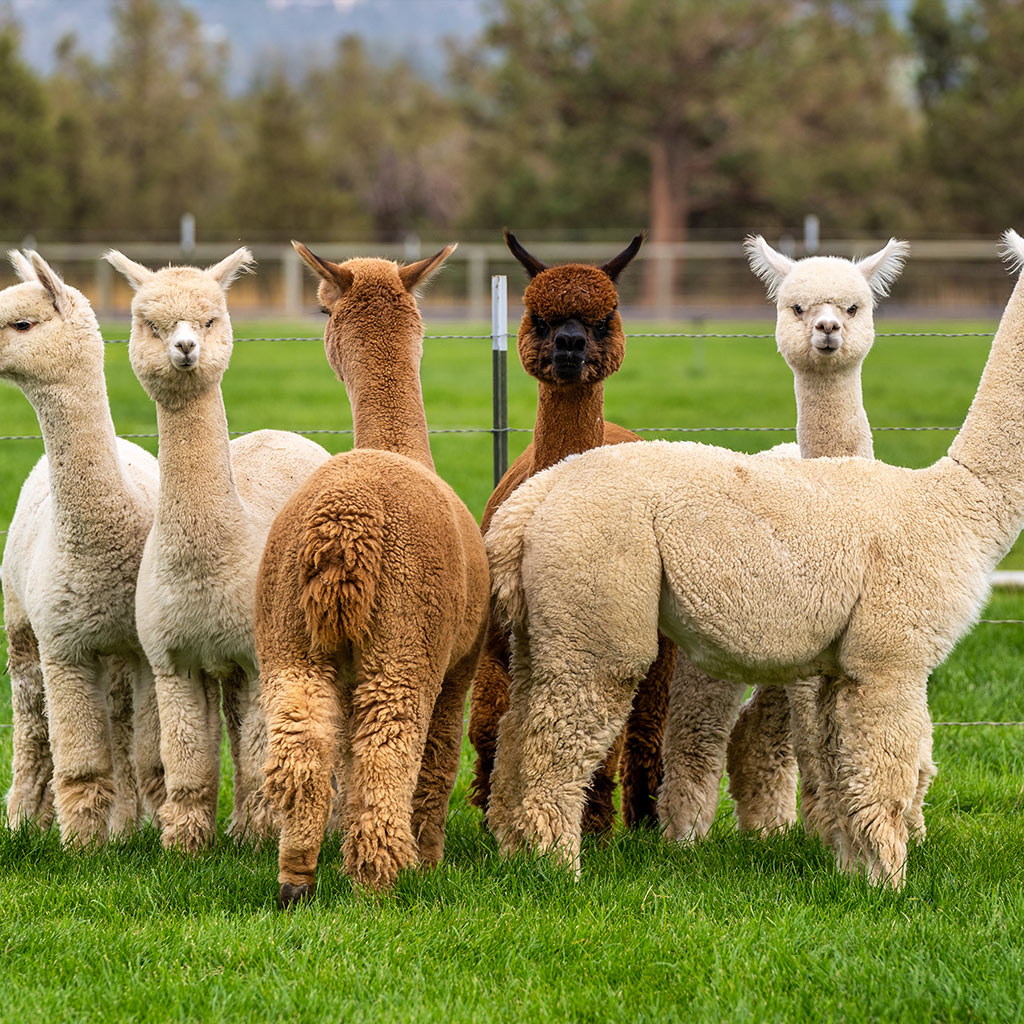

This lofty claim is easily supported by recent history and realistic projections into the future:
1) There is a growing demand for alpaca fiber in textile and fashion centers throughout the world and a drastically limited supply of these animals outside their native South American homelands. Peru, Bolivia, and Chile have stringent export restrictions on further transport of their national treasures in order to avoid depletion of their own heads.
Given the slow reproductive rite of alpacas and the superb quality of their fiber, consumers will continue to want more fleece than alpaca farmers can produce, thus creating a market where prices paid for alpacas and alpaca fiber will remain high.
2) Exciting and proven tax savings are another integral part of the investment value inherent in alpaca ownership. While these apply only to breeding animals and the infrastructure needed to maintain them, over 25 established avenues for tax savings are available to you as an investor in alpacas. They include:
a) Depreciation on purchased breeding alpacas, structures, machinery, equipment, and other items whose useful life extends to more than one year.
b) Complete write-off on many maintenance expenses, such as feed, veterinary fees, electricity for the barn, etc.
c) Deferral on capital gains through utilization of the compounding plan which shelters profits until the alpaca is actually sold.
As in any business venture, you are urged to consult with a qualified accountant before beginning your alpaca business. Alpaca.com™ L.L.C. can also assist you in your research in this area.
Having said all that, a simple truth remains: “A dollar legitimately saved from taxation is a dollar earned.”
3) Compared to other livestock, alpacas are inexpensive to own. Aside from the initial purchase of your animals (which can be depreciated over five years), the maintenance costs for these hardy and healthy little animals are minimal. They are “earth friendly” and coexist in nature in a positive and productive manner. A little hay, grain, and clean water; a bit of room to move around with other members of their herd; safe fencing and shelter; and as much love as you want to give them. These are the best requirements you need to provide for your alpacas. You will quickly discover that they give much more than they take.
4) Flexible ownership strategies are also available to you. Proven plans for “hands-on care” and/or boarding your animals (agistment) can be obtained from Alpaca.com™ L.L.C. and several authoritative books dealing with different methods of alpaca farming. While specific tax guidelines vary with the type of plan you choose, the investment value remains very high.
5) A fully operational alpaca farm can be started for an initial set-up cost as low as $40,000. This includes a few breeding-age alpacas and the infrastructure necessary to maintain them. This figure does not take your land and your own housing costs into consideration, but still, a financial expenditure that is attractively affordable when compared to the startup costs associated with most other home businesses or franchises.
6) Alpaca farmers who have been in business for four years or more routinely report returns on their capital expenditure which range between 25 to 60 percent. Many variables can influence your actual profits, but as an alpaca owner, you are investing your assets in a vehicle with a proven record for profitability and which promises to become even more financially rewarding in the future.
7) Demand for alpaca fiber continues to grow dramatically. You will harvest your fleece each year and have the option of selling it yourself or consigning it to the alpaca fiber coop. The latter offers you an easy and guaranteed outlet for your fiber and promotes a greater awareness of and demand for alpaca fiber in the fashion world.
8) Unlike most other home business inventories, your alpacas are fully insurable. Your modest premium costs will protect you from catastrophic loss of animals and capital in much the same way the FDIC covers your savings at the bank. Only your investment returns should be much higher with alpacas, however.
9) But the positive reasons for investing in alpacas would be incomplete without one more category simply called intangibles. As you have already seen, the following values are measurable and factual:
Initial costs for startup of your alpaca business: $40,000
Number of legitimate tax deductions you will enjoy: over 25
Productive life of a healthy alpaca: 13 to 17 years
Potential return on your capital investment: over 60 percent
But the value of your own personal sense of peace, pride, enjoyment, and freedom, which is created by owning and being in the company of these wonderful animals… Priceless!
All of the contents of this web site are the original property of Alpaca.com L.L.C. and may not be copied, downloaded, duplicated, or reproduced in any fashion without the express written consent of Alpaca.com L.L.C. Contents Copyright © 1995-2021 Alpaca.com L.L.C. and AlpacaNet L.L.C. All rights reserved.


